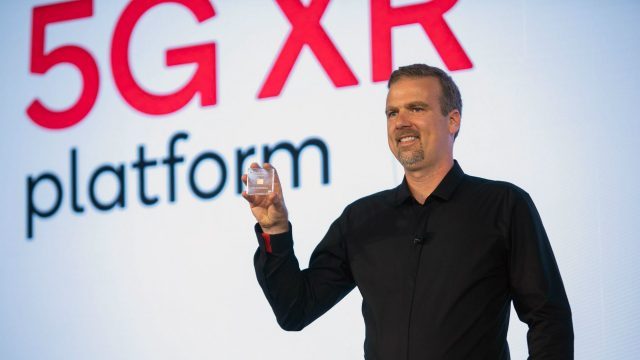Hugo Swart, General Manager and Vice President of XR at Qualcomm, has announced his departure from the company at a pivotal moment in the industry.
Hugo Swart, who has been with Qualcomm for 20 years, this week announced that he’s leaving the company. Most recently, Swart has been the company’s GM & VP of XR for more than six years.
Swart was a driving force behind the company’s Snapdragon XR series of chipsets, which currently power the vast majority of major headsets on the market. Under his tenure, the division worked closely with Meta. Not only are Snapdragon chips in every single one of Meta’s standalone XR headsets, the two companies publicly announced a multi-year collaboration around XR chipsets back in 2022.

“After 20 years at Qualcomm, I am embarking on a new journey,” Swart announced. “It was an amazing two decades starting with driving EV-DO technology adoption in Latin America to running Qualcomm’s XR business. So many great memories, friendships, partnerships and accomplishments that I am grateful for. Looking forward to the next phase, but first I am taking some time off and will update you then.”
So far it seems a successor for the position has not been named.
In the wake of this leadership change, Qualcomm faces the challenge of defending its market share against competitors like NVIDIA, AMD, and Intel, which are also eyeing the growing XR space, especially with the launch of Vision Pro, which is powered by Apple’s own custom chips.
A crucial indicator of Qualcomm’s continued momentum in the XR market may be the reception of Samsung’s upcoming XR headset. Samsung, Google, and Qualcomm are publicly partnered on that project, with the expectation that Qualcomm will make the chips, Samsung will make the hardware, and Google will make the software.
The XR industry is at a critical juncture, with Qualcomm’s partnership with Meta and the competitive pressure from Apple Vision Pro shaping the strategic landscape. The ongoing collaboration with Meta underscores the importance of strategic alliances in driving XR adoption and innovation, especially with competitive pressures mounting in a way the XR industry hasn’t previously seen. The effectiveness of Swart’s eventual successor will be key in shaping Qualcomm’s trajectory in the XR market.



